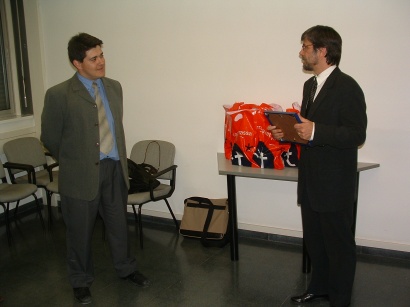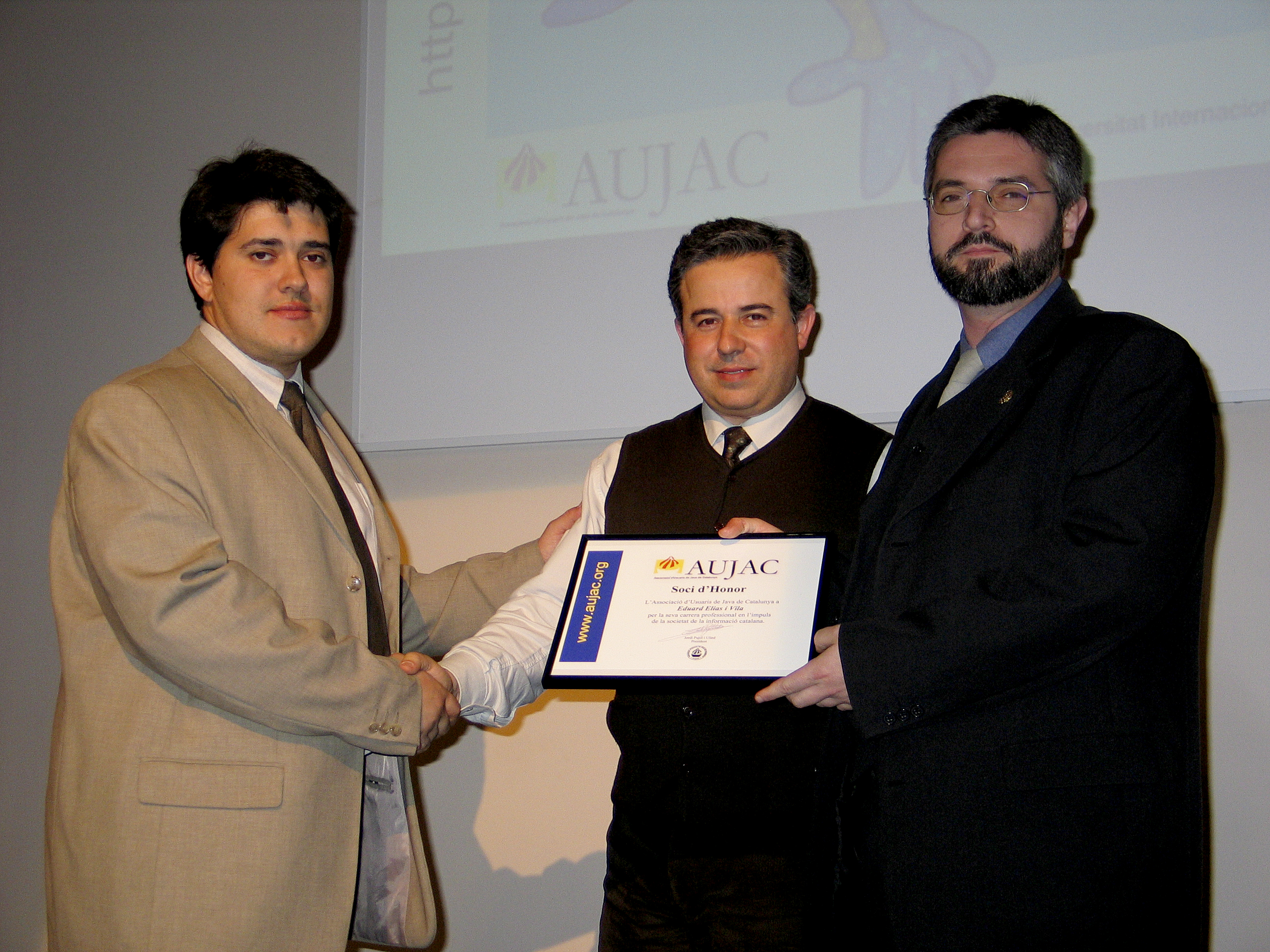Aujac
Associació d'Usuaris de Java de Catalunya > Honorary members
Every April, Aujac awarded the Aujac Honorary Member to a Catalan personality or entity.
With this distinction we wanted to recognize those personalities or entities that, thanks to their character, involvement, dedication and effort, have contributed to the growth and development of the information society in our country.
Honorary Member 2001
Mr. Antoni Farrés i Sabater, was named Honorary Member of Aujac in 2001.
A political icon of the democratic movement in the 70s in Sabadell, he was the first democratic mayor of the aforementioned town, and one of the great social promoters of the post-Franco regime.
On the other hand, promoter of information society projects, such as the creation of the Fundació de les Industries de la Informació, based in Sabadell, or promoter of electronic administration projects in Catalonia.
It should be noted that the opening speech of the Aujac was given by him at the headquarters of the former F2I, Fundació Indústries de l'Informació, in Sabadell, today the headquarters of the Chamber of Commerce of Sabadell.
Honorary Member 2002
Joan Daví i Ferrer, became an Aujac Honorary Member in 2002.
Joan Daví i Ferrer, from Terrasse, project director at Caixa Terrassa, led within the banking world an opening towards non-proprietary systems that led him to conceive banking architectures that had not been published until then, and that broke schemes, and above all with the traditional systems established in the financial environments.
Today, his designs in IT architectures dedicated to banking services are a reference.
This is why Aujac considered it appropriate to distinguish him with the "Honorary Partner".
Honorary Member 2003

Dr. Jordi Roig de Zarate, was full professor of the Computer Science Department of the Autonomous University of Barcelona.
He was director of the Sabadell University School of Informatics, during the period 2000-2002.
A constant fighter against his own difficulties, he has always been able to win the battle of adversity, proving that many times, there are no barriers that cannot be overcome with effort, dedication and perseverance.
This spirit of improvement, together with his unbeatable professional profile, make him a person who has been able to transmit the enthusiasm for new technologies to his students.
It is for this reason and many others, that Dr. Jordi Roig de Zarate was named "Aujac Honorary Partner" in 2003.
Honorary Member 2004

Mr. Eduard Elias, dean of the Official College of Computer Engineering of Catalonia was named Aujac Honorary Member 2004.
Promoter and promoter of the Catalan Association of Computer Engineers (ACEI), he was one of the architects of the creation of the Official College of Computer Engineering of Catalonia.
We thank from Aujac, so many years of dedication to the association and then in the dean's office to achieve a regularization of the profession.
His strength and dedication has allowed the creation of the Official College in Catalonia and that is why on April 16, 2004, in the Aula Magna of the International University of Catalonia, he was presented with this distinction.
Honorary Member 2005
The Associació para Joves TEB, was awarded on 15 of April 2005, during the closing ceremony of the III Catalan Java Days, as Honorary Member Aujac 2005.
With this distinction, we want to recognize the effort and dedication carried out by this entity, which have demonstrated their contribution to the growth and development of the information society in areas where young people live in situations of marginalization and exclusion, and where new technologies could not be another barrier.
It is from this project that such important initiatives as Xarxa-Òmnia, RavalNet, and thus a long series of projects that have acted as real social dynamizers and bridges of cohesion where pockets of social marginalization could occur, have emerged.
